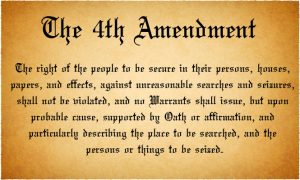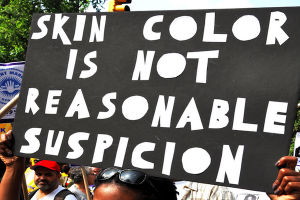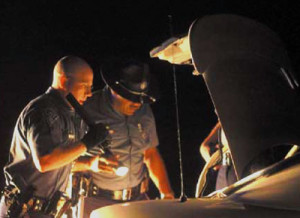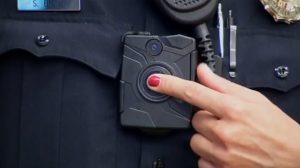At a hearing on a motion to suppress an illegal search and seizure, a Boston police officer testified about responding to a radio broadcast for someone wanted in connection with a domestic assault and battery. The broadcast identified the license plate of the car the suspect might be in, the vicinity it was in and warned that he may have a gun. The officer continued that the victim of the domestic assault and battery went into the station to report the crime. After the motion judge made her findings the defense attorney requested factual clarification. After some additional inquiry the judge struck the portion of the officer’s testimony regarding the victim’s in person report of the domestic assault and battery. However, in denying the motion to suppress the judge found sufficient independent corroboration based on the broadcast stating that the vehicle was heading towards the defendant’s mother’s home. In fact, there was no such evidence in the record. Continue Reading
Articles Posted in Search and Seizure
Police Must Have Reasonable Suspicion to Make a Traffic Stop
No matter what time of day or night law enforcement in Massachusetts is out patrolling the highways and roads to keep drivers safe. Law enforcement will be on the lookout for anything that seems to be amiss amongst drivers on the road, and they will be making traffic stops if they believe that drivers have violated the law. A law enforcement officer must have reasonable suspicion that a driver has violated a traffic law before he or she may pull a vehicle over to the side of the road. If the traffic stop reveals evidence that gives the police officer probable cause to make an arrest, then he or she will make an arrest as appropriate. Continue Reading
Supreme Judicial Court Decision Makes it Harder for Police to Seize Cellphones
In a move that strengthens individuals’ right to privacy, the state’s highest court ruled that state law enforcement must have particularized evidence that a cellphone is tied to a criminal act in order to be able to seize the cellphone. While the court acknowledged that there is a common sense notion that cellphones are often used by criminals to communicate with other criminals about their criminal activities, or that cellphones could be used for other tasks, like taking pictures that could also be used as evidence in a criminal proceeding, the mere fact that there is only a commonsense notion of these uses of a cell phone is not sufficient override an individual privacy rights. This decision makes it harder for police to seize cellphones.
Evidence Seized Suppressed After Inventory Search Ruled Unconstitutional
Last month the Massachusetts Supreme Judicial Court affirmed a trial judge’s decision to suppress evidence unlawfully obtained in the course of an inventory search. In Commonwealth v. Oliveira, decided March 28, 2016 the Court found it unreasonable for the police to conduct an inventory search after the operator was arrested for shoplifting and the operator gave the police a practical alternative to impounding the car. In addition to shoplifting, the defendants in this case were charged with carrying a firearm in violation of G.L. c. 269 Section 10(a) and possession of ammunition, a violation of G.L. c. 269 Section 10(h). Both the weapon and the ammunition were suppressed. This will likely result in a dismissal of those charges. Continue Reading
Boston Police Have Been Using Cell Phone Trackers
The recent revelation of a non-disclosure agreement signed by the Boston Police Department at the request of the FBI has raised some concerns in the criminal defense world after a public records request generated proof of Boston PD’s investigation activities. The Boston Police Department admitted publicly to entering into a non-disclosure agreement with the FBI concerning cell phone tracking technology. Cell phone tracking is a controversial investigative technique at this point in time because it is used by many law enforcement agencies, but there are privacy concerns over whether using cell phone trackers should be authorized. Continue Reading
How Long Can The Police Hold Someone If They Are Not Under Arrest?
This past weekend I got a call from someone telling me that her cousin was involved in a motor vehicle accident where someone died. She was being held at one of the Boston police stations. The caller was clearly intelligent. Her cousin told her that she could not leave the police station. The caller then spoke with one of the detectives who told her that her cousin “was not in custody” but also that “she could not leave the station”. Another lawyer from my office called the police station and the detective told just what the caller had told me. This prompted me to write about the question: how long can the police hold someone if they are not under arrest. Continue Reading
Body Cameras Proposed for Boston City Police
In light of so many instances of police-involved shootings over the past year across the country, the Boston City Council is considering a proposed pilot program that would have Boston city police wearing body cameras to record officers’ activities, CBSBoston reports. The purpose of the cameras would be to observe the officers’ actions in an unbiased way, including their interactions with civilians and suspects. Continue Reading
Texting and Driving and Reasonable Suspicion For Motor Vehicle Stop
Not too long ago Massachusetts enacted a law prohibiting texting and driving. The statute, Massachusetts General Laws Chapter 90 Section 13B has enables police officers to make motor vehicle stops that in the past would not have been considered lawful. There is however a silver lining for Massachusetts criminal defense attorneys challenging stops under this law. The statute is written in a way that makes it virtually impossible for a judge to sustain the stop if properly challenged through a motion to suppress. Here is why. Continue Reading
How Can I Prove That The Police Searched Me For No Reason?
Perhaps the most common complaint I get from clients about police officers involves stops, searches and seizures for apparently no reason. The client will tell me that he wasn’t doing anything and that the cops searched him anyway. Or someone might say that he was pulled over, removed from his car and that he and the car were searched. Now keep in mind none of these people would need my services unless the police found something during the illegal search that suggested a crime was committed. So the next question I get asked is “how can I prove that the police searched me for no reason?”. This article examines what criminal defense lawyers can do in these situations.
How Can I Prove That The Police Searched Me For No Reason?
Perhaps the most common complaint I get from clients about police officers involves stops, searches and seizures for apparently no reason. The client will tell me that he wasn’t doing anything and that the cops searched him anyway. Or someone might say that he was pulled over, removed from his car and that he and the car were searched. Now keep in mind none of these people would need my services unless the police found something during the illegal search that suggested a crime was committed. So the next question I get asked is “how can I prove that the police searched me for no reason?”. This article examines what criminal defense lawyers can do in these situations.
 Massachusetts Criminal Defense Attorney Blog
Massachusetts Criminal Defense Attorney Blog










